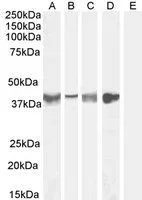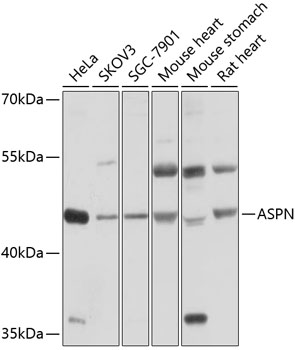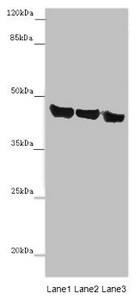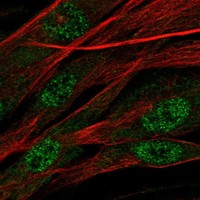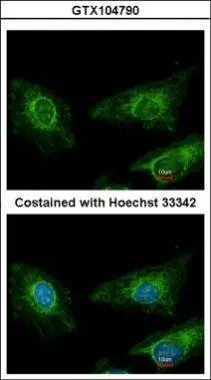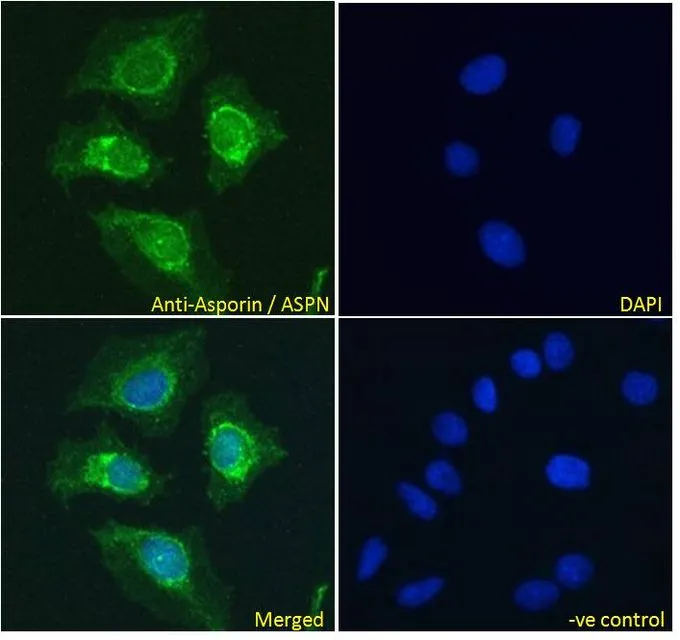
ICC/IF analysis of PFA fixed HeLa cells using GTX89589 Asporin antibody, Internal. Green : Primary antibody Blue : DAPI Negative control : Unimmunized goat IgG Permeabilization : 0.15% Triton Dilution : 10μg/ml
Asporin antibody, Internal
GTX89589
ApplicationsImmunoFluorescence, Western Blot, ImmunoCytoChemistry
Product group Antibodies
ReactivityHuman, Mouse, Rat
TargetASPN
Overview
- SupplierGeneTex
- Product NameAsporin antibody, Internal
- Delivery Days Customer7
- Application Supplier NoteWB: 0.1-1microg/ml. ICC/IF: 10microg/ml. *Optimal dilutions/concentrations should be determined by the researcher.Not tested in other applications.
- ApplicationsImmunoFluorescence, Western Blot, ImmunoCytoChemistry
- CertificationResearch Use Only
- ClonalityPolyclonal
- Concentration0.50 mg/ml
- ConjugateUnconjugated
- Gene ID54829
- Target nameASPN
- Target descriptionasporin
- Target synonymsOS3, PLAP-1, PLAP1, SLRR1C, asporin, asporin (LRR class 1), asporin proteoglycan, periodontal ligament associated protein 1, small leucine-rich protein 1C
- HostGoat
- IsotypeIgG
- Protein IDQ9BXN1
- Protein NameAsporin
- Scientific DescriptionThis gene encodes a cartilage extracellular protein that is member of the small leucine-rich proteoglycan family. The encoded protein may regulate chondrogenesis by inhibiting transforming growth factor-beta 1-induced gene expression in cartilage. This protein also binds collagen and calcium and may induce collagen mineralization. Polymorphisms in the aspartic acid repeat region of this gene are associated with a susceptibility to osteoarthritis, and also with intervertebral disc disease. Alternative splicing of this gene results in multiple transcript variants.[provided by RefSeq, Jul 2014]
- ReactivityHuman, Mouse, Rat
- Storage Instruction-20°C or -80°C,2°C to 8°C
- UNSPSC41116161

